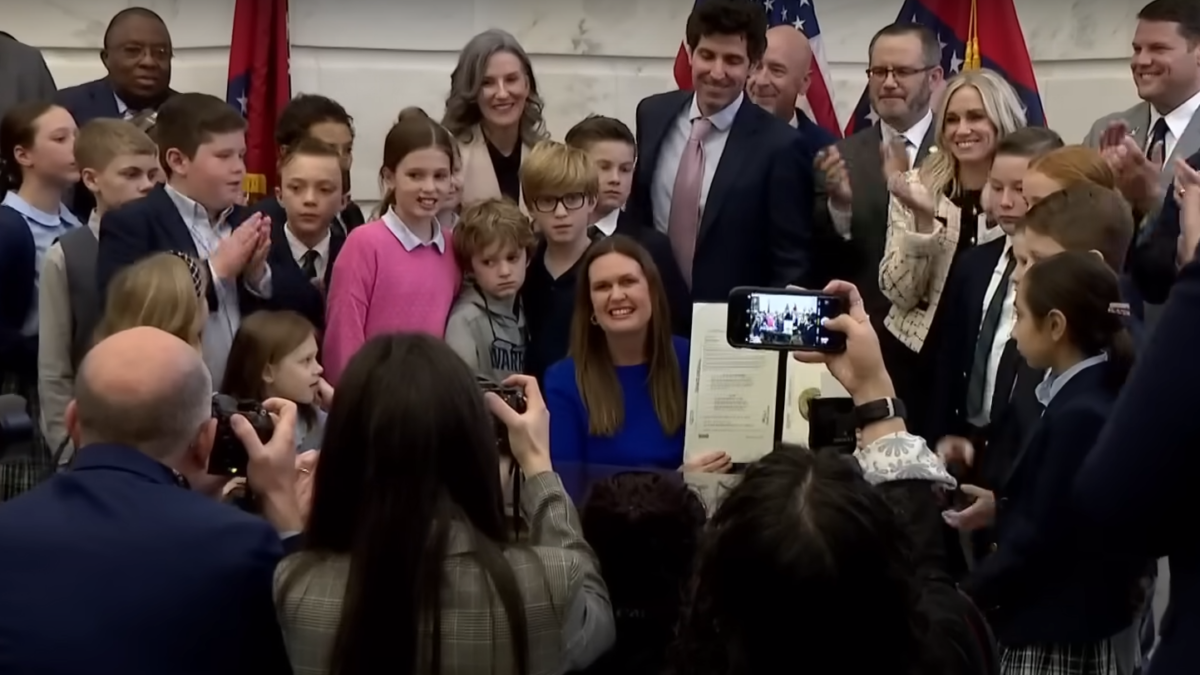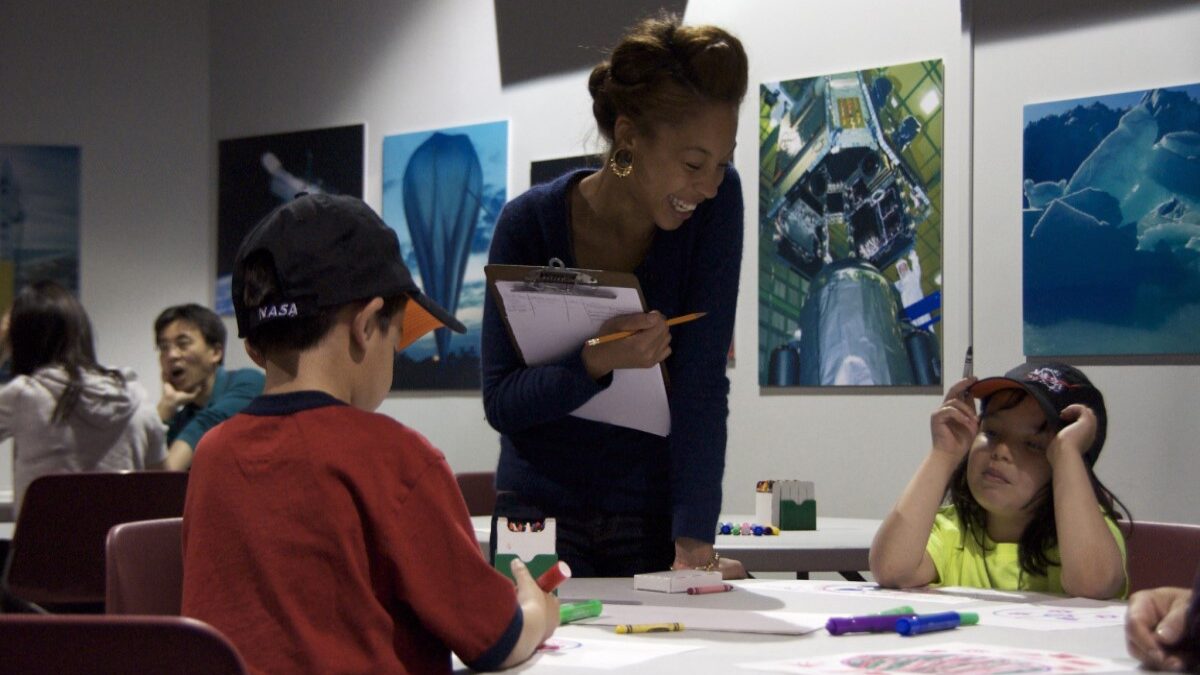
You can still have your children educated in person in California — if you’re one of the few lucky enough to have a program in your neighborhood and are wealthy enough to afford it.
Since New Years Day, 2020 Democrat Gov. Gavin Newsom and the Democratic supermajorities in the state’s legislature have enacted laws increasing union and state control over education. When they closed the public schools for Covid-19, it all came crashing down, leaving it nearly impossible for poor, working and even many middle-class parents to afford to have their children taught by anything other than a flickering screen.
‘If People Want To Talk About Systemic Racism And The Marginalization Of Minorities, This Is It’
In mid-July, a new law took effect giving public school boards greater control over their charter school competitors, broadening the avenues to decline new charter school requests with the vague requisite the school “serve the interests of the entire community.” Additionally, boards can now decline requests for renewal from established charter schools for reasons such as that school’s choice of facilities. In California, it’s not difficult to foresee a solar panel, automatic door, or bathroom code going unmet.
Los Angeles, which education news site EdSource called “ground zero for the interpretation” of the new law, voted Tuesday on its implementation. The city has 118,000 charter students, with LAist reporting it’s home to more charter schools than any other American city. Because California attaches tax money to each student, any one leaving a public school district means less money for that district, ginning up strong school-board incentives against their private competition.
On July 27, the California Charter School Association charged the upcoming vote “appears to be designed to deliver on [the LA teacher union] leadership’s goal to ban new charter schools and close existing quality schools in ways that have no basis in the new law.”
“This draft policy,” the association continued, “will undercut the possibility of collaboration and exacerbate academic inequity.” And that’s just one California city.
A week after the state enacted the charter school power-grab, the governor declared that no schools — public, charter, private, religious — can reopen in any of California’s counties on his list for rising Covid-19 levels. The governor’s list is, of course, massive, with ABC reporting that the 32 (of 58) districts forced to close include “the vast majority of the state’s population and its biggest cities, Los Angeles, San Diego and San Francisco.”
The state’s power to add counties to the list at whim only adds on, spreading uncertainty across the rest of the state. At any moment, districts know, they could be shut down, stranding children, parents, and educators in limbo.
The July enactments follow on Assembly Bill 5 (AB 5), which the governor endorsed and signed a month before the charter school bill, and which took effect on Jan. 1. The law targeted “gig” workers progressive Assemblywoman Lorena Gonzalez said were exploited. While national news coverage focused largely on the effect on Hollywood writers, freelance journalists, and Uber and Lyft drivers, parents with children closed out of schools are now left struggling to hire tutors for their children.
“AB 5 Causing Confusion For Tutors, Parents,” an Aug. 5 ABC 10 San Diego headline reads. “It will open parents to penalties if they have a tutor or a teacher they hire to help out their children while the schools close,” California Republican activist and radio host Carl DeMaio charged at a press conference that same day. “The idea that the governor has been silent on this enforcement problem is shocking because many parents are scrambling right now to find out how do they help their children keep pace.”
While Gonzalez claims the law doesn’t bar parents from hiring a teacher, to do so they must start a corporation and bring them on as an employee, incurring all the tax and compliance burdens this entails. Unfortunately for parents counting on an Election Day vote to undo the law, the Uber and Lyft-funded effort simply carves out an exemption for rideshare and delivery drivers.
There are, however, rare options parents with means can enroll their child in for in-person education. One such private program, Right At School, is run in tangent with local school systems. This national, in-school and extracurricular program usually operates before and after school but has expanded operations to make up for closed classrooms.
In the case of a single mother The Federalist spoke to in a Los Angeles County city, the cost ranged from $48 a week for one-day-a-week instruction to $240 a week for five days. She requested anonymity to speak freely about her struggle to educate her child like normal in this charged and political environment.
For parents trying to decide between quitting their job to home school, pay the bills, or actually move to a state where their child can socialize with other kids and learn in person, programs like Right At School offer a glimmer of hope, although its presence is still limited to a handful of areas in a handful of states — and even then, only if enough students sign up for it to be practical to operate. Parents can apply for discounts if they qualify, although in states like California, millions will go without even the option to try.
“Newsom has criminalized hiring an in-home tutor,” she told The Federalist, “and everything is ‘online’ but with these programs.” Even with the price, she said, she was deeply grateful any option existed at all and relieved to have found it. Then this week, she got word not enough students had signed up for the program her district was using, extinguishing yet another chance.
“I’m devastated,” she said.
Upper-class parents with the know-how and resources have the option, still, to start a corporation for their household schooling or join with other homes to start “a pod,” bringing on teachers as employees. In California, thanks to AB5, this is more difficult than even pricey states like New York, where one tutor who usually charges $100 an hour for one-on-one study suggested to a local cable channel that a group of three or four students for four hours of math instruction might work out around $200 per student.
Tutors and supplemental programs, of course, have existed for decades, offering education and physical activities before and after school hours across the country for varying prices. It’s as much a legitimate service as any, and allows parents of greater means, or those with support, to enhance their child’s education, plug gaps or simply catch up a kid who is struggling.
There is blame to lay, however, for taxpaying parents having to spend additional money many don’t have simply to educate their children, and it falls directly on the Democrats, progressives, and union allies running the state and denying children an education any other way.
For years, the public school system and the unions that control it have increased their dominion over all types of education in California. While religious, charter and home-schoolers have been burdened with bureaucracy and entangling regulation, with the schools eventually being shut down by coronavirus restrictions in the majority of the state the failing public system has grown even more powerful.
These kind of laws always affected some, but legislators were smart enough not to hurt every one — before now. Coronavirus restrictions have emboldened progressives across the country to seize power from the citizenry at a level not seen in modern history. Maybe when it’s over California will wake up, but don’t count on it.
“If people want to talk about systemic racism and the marginalization of minorities,” the mother told The Federalist, “this is it.”









